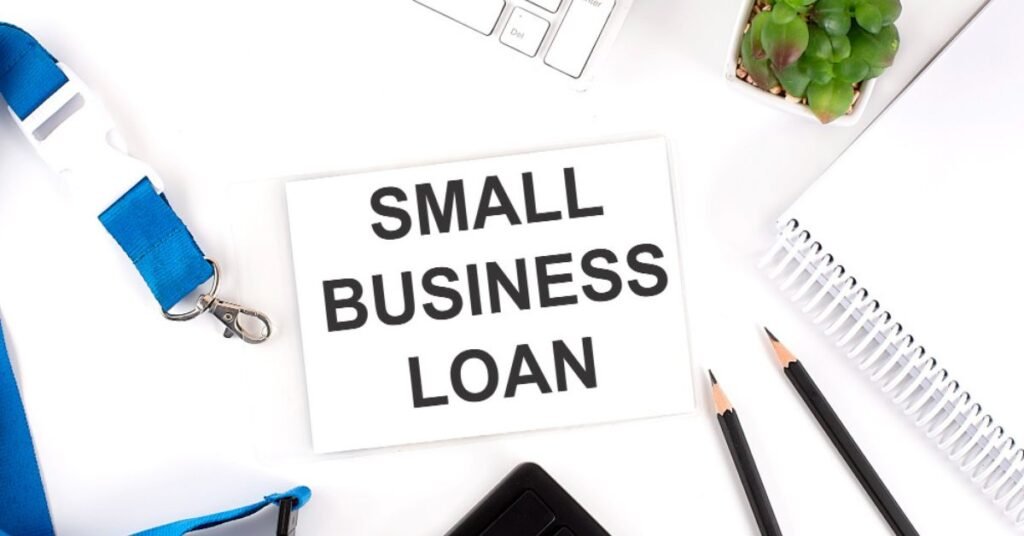Small Business loans: Whether you’re opening a BBQ joint in Austin, launching a tech startup in Dallas, or expanding a landscaping business in El Paso—access to funding is often a critical step in growing your small business in Texas. One of the first questions you’ll face when exploring business financing is:
Are small business loans secured or unsecured?
The short answer: They can be either.
In this blog, we’ll explain what each type of loan means, how they apply in the Texas business lending environment, and how to determine which is best for your business.
1. What Is a Secured Loan?
A secured loan requires the borrower to offer collateral—something of value that the lender can seize if the loan is not repaid.
Examples of collateral:
- Business equipment
- Real estate (commercial or personal property)
- Vehicles
- Inventory
- Personal savings or investments
Pros:
- Lower interest rates
- Easier approval for new businesses
- Larger loan amounts possible
Cons:
- Risk of losing assets
- More paperwork and time required
2. What Is an Unsecured Loan?
An unsecured loan does not require collateral. Instead, approval is based on the business’s creditworthiness, cash flow, and financial history.
Pros:
- No risk of losing property
- Fast approval, especially through online lenders
- Less documentation required
Cons:
- Higher interest rates
- Lower borrowing limits
- Tougher qualification standards
3. Which Type Is More Common in Texas?
In Texas, secured loans are more commonly offered by banks and credit unions, especially for newer or smaller businesses. However, unsecured loans are widely available, especially through fintech lenders and alternative financing sources.
The type of loan you qualify for often depends on:
- Your business’s age
- Credit history (business and/or personal)
- Revenue and profitability
- Purpose of the loan
4. Common Types of Small Business Loans in Texas
| Loan Type | Secured or Unsecured? | Details |
|---|---|---|
| SBA 7(a) Loan | Secured (usually) | Backed by the government, these loans often require collateral and are available through approved Texas lenders. |
| SBA Microloan | Secured or partially | Ideal for smaller loan amounts (<$50,000). May require personal guarantees and/or collateral. |
| Bank Term Loans | Typically Secured | Offered by local and national banks. Require strong financials and collateral. |
| Business Line of Credit | Both | Revolving credit line; can be unsecured if you have strong credit. |
| Equipment Financing | Secured | The equipment itself usually acts as collateral. Common among Texas contractors and trades. |
| Merchant Cash Advances | Unsecured | Fast but expensive. Repayments are tied to future sales. |
| Online Business Loans | Often Unsecured | Fintech lenders may approve quickly, but rates can be higher. |
| Invoice Financing | Secured by Invoices | Lenders advance cash based on your unpaid invoices. |
5. Factors That Determine Loan Type & Approval in Texas
When applying for a loan, lenders in Texas evaluate a variety of criteria:
- Credit Score: Higher scores improve chances for unsecured approval.
- Business History: Lenders prefer businesses operating for 1–2+ years.
- Annual Revenue: Shows financial strength and ability to repay.
- Collateral Availability: Determines whether you qualify for secured funding.
- Industry Type: Some industries (e.g., construction, trucking) are considered higher risk.
- Loan Purpose: Lenders want to understand how the funds will be used (e.g., expansion, equipment purchase, hiring, etc.)
6. When to Choose a Secured Loan in Texas
A secured loan may be your best option if:
- You’re a new business or startup with little credit history
- You need large amounts of capital
- You have assets available to use as collateral
- You want lower interest rates
7. When to Choose an Unsecured Loan in Texas
An unsecured loan could be the better choice if:
- You need quick funding with minimal paperwork
- You have excellent credit and strong cash flow
- You don’t want to risk your assets
- You only need a small-to-moderate loan amount
8. Where to Get Small Business Loans in Texas
Texas has a wide range of financing sources, including:
Banks and Credit Unions:
- Frost Bank, Comerica, Prosperity Bank
- Credit unions like UFCU, RBFCU
SBA-Approved Lenders:
- LiftFund, PeopleFund, and local community banks
Online Lenders:
- BlueVine, OnDeck, Fundbox, Kabbage
- Fast funding, often unsecured, but higher APRs
Alternative Lenders:
- Invoice factoring and merchant cash advance providers
9. Tips Before Applying for Any Loan
- Know your credit score (both business and personal)
- Create a clear business plan
- Review your financial statements
- Compare multiple loan offers
- Understand the terms (interest rate, repayment schedule, fees)
- Read the fine print
Final Thoughts: Choosing the Right Loan for Your Business in Texas
Both secured and unsecured small business loans are available in Texas—but the best one for you depends on your business’s financial health, your risk tolerance, and how quickly you need funding.
If you have solid financials and want flexibility, unsecured loans may be worth considering. If you’re building your business or seeking better rates, secured loans offer stronger approval odds and lower costs.
FAQ: Are Small Business Loans Secured or Unsecured in Texas?
1. What’s the difference between secured and unsecured small business loans?
- Secured loans require collateral (such as property, equipment, or savings).
- Unsecured loans don’t require collateral but rely on creditworthiness and business performance.
2. Are small business loans in Texas usually secured or unsecured?
Most traditional lenders in Texas offer secured loans, especially for new or expanding businesses. However, unsecured loans are also available through online lenders and some banks, especially for well-established businesses with strong credit.
3. What types of collateral are used in secured business loans?
Collateral may include:
- Business equipment or vehicles
- Real estate (commercial or personal)
- Inventory
- Bank accounts or investments
4. Who offers small business loans in Texas?
- Banks and credit unions (e.g., Frost Bank, Comerica)
- SBA lenders (e.g., LiftFund, PeopleFund)
- Online lenders (e.g., BlueVine, OnDeck, Fundbox)
- Alternative lenders (e.g., invoice financing companies)
5. Which is easier to get: a secured or unsecured loan?
Secured loans are often easier to get for newer businesses or borrowers with low credit. Unsecured loans require better credit and financial history but are faster and require less paperwork.
6. What types of small business loans are available in Texas?
Common loan types include:
- SBA 7(a) and Microloans (usually secured)
- Bank term loans (secured)
- Business lines of credit (secured or unsecured)
- Equipment financing (secured by the equipment)
- Online short-term loans (often unsecured)
7. How much can I borrow with a secured vs. unsecured loan?
- Secured loans usually offer higher limits, up to several million dollars depending on your collateral.
- Unsecured loans typically offer smaller amounts, often up to $100,000–$250,000.
8. What are the interest rates for each type?
- Secured loans generally offer lower interest rates (e.g., 6–12%)
- Unsecured loans may have higher rates (e.g., 10–35%), especially from online lenders.
9. Can a small business get an unsecured loan with bad credit?
It’s possible, but difficult. You may qualify for a merchant cash advance or invoice financing, though these can be expensive. Most unsecured loans require good to excellent credit.
10. What are the pros and cons of each loan type?
| Feature | Secured Loan | Unsecured Loan |
|---|---|---|
| Collateral | Required | Not required |
| Interest Rate | Lower | Higher |
| Loan Amount | Higher limits | Lower limits |
| Risk to Borrower | May lose assets if unpaid | No asset loss, but credit damage possible |
| Approval Speed | Slower | Faster |
11. How do I decide which loan is right for my Texas business?
Consider your:
- Business age and revenue
- Credit score
- Urgency of funding
- Willingness to offer collateral
- Loan amount needed
12. Where can I get free help applying for a loan in Texas?
You can contact:
- Texas Small Business Development Centers (SBDCs)
- SCORE chapters
- Local Chambers of Commerce
They offer free consultations, loan preparation assistance, and lender referrals.
Read More:
- How to Get a Business Loan for a Startup in Los Angeles 2025
- What Is a Good Personal Loan Company and Its Plans in Ohio?
- What Is the Best Debt Consolidation Loan Company, Plan, and Process in Texas?
- How to Get Pre-Approved for a Car Loan in California (2025-26)
- Can I Apply for a Home Loan Without My Spouse in New York? 2025










